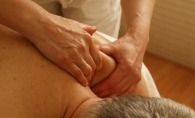Teens with depression have a new line of defense against destructive emotions. The Healthy Emotions program at PrairieCare in Edina, which has been in operation for one year, is a six-week intensive outpatient program that teaches teens and their parents skills they need to combat depression, anxiety and other mood disorders. The program centers on cognitive behavioral therapy, a form of treatment that considers the connection between thoughts, feelings and behaviors when tackling mental illness.
Teens attend the Healthy Emotions program Monday through Thursday for three hours, engaging in discussions and structured activities that build skills and shift individual thought patterns to improve mood over time. The program consists of three two-week modules: One two-week module focuses on behaviors, another focuses on thoughts, and the third focuses on emotions. During the behavior module, teens are taught behavioral activation, or the idea that engaging in pleasant activities that make the teen feel accomplished and productive will then lead to the development of other healthy habits like sleeping, eating and exercising regularly, all of which work to elevate mood.
During the thoughts module, participants are taught to become aware of and challenge unhelpful thoughts. Even if they can’t control negative thoughts that pop into their heads, they can combat those thoughts by questioning them instead of accepting them outright. They are also taught problem-solving: working through various scenarios with other participants to practice dealing with potential issues that may arise with families and peers.
During the emotions module, participants learn how to recognize and cope with stress and distress. One of the skills they develop is identifying their stress signals so they can fight those sensations with relaxation skills like visualization, progressive muscle relaxation, deep breathing and coping self-talk. Participants are also instructed to come up with a crisis or safety plan so that when in distress—a state of extreme anxiety—they know who they can talk to and what they can do to distract themselves in the moment. Once teens have developed their crisis plan, they practice following through with it.
Positive actions, positive emotions and positive thoughts are all linked. If teens learn and practice methods to improve these aspects, they will be better equipped to make lasting changes.
Family support is crucial if positive changes are to stick, so parents are included in the treatment process. In addition to the teen group, there is a parent group that meets twice a week to learn how to reinforce positive skills. According to Dr. Carrie Sweetser, a post-doctoral fellow and the clinical lead for the Healthy Emotions program in Edina, “Parents can help with reinforcing, encouraging and supporting the use of skills if they’re aware of what the skills are.”
At first, Sweetser says, some participants don’t want to be in the program, or they don’t think the program can help combat their depression, but that usually changes over time. “We’ve definitely seen kids who are more willing and open to talking about their feelings, working on their feelings, who have more of a sense of hope that things can change because they’ve already started to make some changes and started to see some improvement,” Sweetser says.
Dr. Michael Bloomquist, a licensed psychologist and adjunct director of evidence-based practices at PrairieCare, developed the Healthy Emotions program and monitors its implementation. Based on information he and his team have collected through weekly assessments, they are seeing progress each week. “The data we’ve collected on about 30 kids suggests that their symptoms are going down over the six-week period,” Bloomquist says.
“This program isn’t going to make things go from black to white,” Sweetser says, “but it is setting the foundation for the trajectory to change, so if they continue using the skills, if they continue having their parents support them [after the program has ended]… they’re really in a good place to continue fighting depression.”
&
To learn more about the Healthy Emotions program at PrairieCare in Edina, call 952.230.9100 or visit prairie-care.com.









